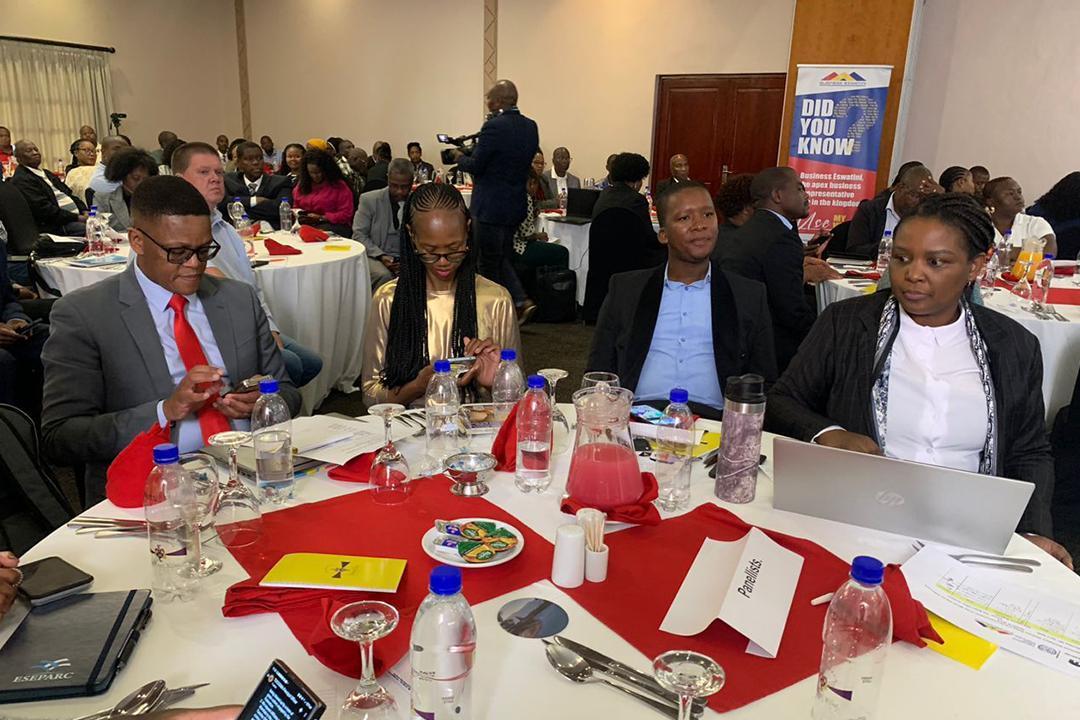Africa-Press – Eswatini. In what will go down as a historic moment in the labour fraternity of the country, Eswatini has been hailed as the first country in the SADC region to launch the National Workplace Wellness Policy.
This transpired on April 28, 2025 at Royal Villas during an auspicious occasion which was characterised by the presence of Minister of Public Service Mabulala Maseko, who was acting as Minister of Labour and Social Security. The theme of the event was ‘Tech Meets Humanity: The New Balance for Workplace Well-being.’ Maseko hailed the event as a result of lengthy discussions between social partners, which include Government, business entities, and workers. Maseko pleaded with employers and employees to ensure that technology does not replace human beings, but should complement what was done by humans. This would help reduce unemployment.
Maseko was standing in for Minister Phila Buthelezi, who had been part of the funeral of the late Pope Francis in Vatican City, having been sent by His Majesty King Mswati III. Buthelezi went there with Deputy Prime Minister (DPM) Thulisile Dladla.
Also featuring at the event was Senator Stukie Motsa, who is the chairperson of the portfolio committee of the Ministry of Labour and Social Security. Facilitating the event was Dr Jacob Miles from Zimbabwe, who is a renowned workplace wellness expert. Dr Miles praised Eswatini for being the first country to launch this programme.
The energetic expert, who kept the attendants on their toes, as he made them to stand and sit down on a number of occasions, expressed concern that employers in workplaces neglected wellness issues, resulting in many people dying from what they could prevent. Dr Miles’ presentation was full of demonstrations and activities that often required participants to change their sitting positions, as he was eager to see everyone in action, including the minister and other senior officials.
During his presentation, Dr Miles said he was worried that some workplaces would design brilliant programmes, which ended up not working. He likened such a habit to a situation where a person would prepare a delicious meal and end up not eating it. He said such an act was dangerous because it denied the employers an opportunity for their companies to be productive, while denying the employees an opportunity to live longer.
He refuted the notion that money was needed for wellness programmes to be effected in workplaces, stating that such programmes could be successfully implemented without any cent.
Other speakers at the event included Trade Union Congress of Swaziland (TUCOSWA) President Bheki Mamba, who also hailed the programme as one that would improve the wellbeing in the workplace. He said it was important to promote health and fight cancers and other diseases in the workplace. He said with such a policy in place, things such as absenteeism would be reduced.
Mamba also viewed the policy as a document that had a potential of creating jobs and reduce the rate of unemployment in the country. He suggested that a Job Summit should be held by trade unions, in collaboration with employers, to find out how more jobs could be created.
Business Eswatini Chief Executive Officer (CEO) E. Nathie Dlamini viewed the theme of the policy as being timely. He said at this time and age, companies such as Amazon, Walmart, General Electric and others did use technology to ensure the safety of their workers.
Expressing a vote of thanks was Senator Stukie Motsa, who said the policy had been discussed since 2011. Motsa said she was happy that the policy was finally launched. She said the discussions of these policies gave birth to organisations such as the Public Sector HIV/AIDS Coordinating Committee (PSHACC).
Motsa expressed hope that PSHACC would now be improved because currently, Government thought the organisation would allow workers to be wayward at work. The senator said at present, PSHACC had only four workers. She hoped PSHACC would eventually be housed in the office of the Secretary to Cabinet.
For More News And Analysis About Eswatini Follow Africa-Press







